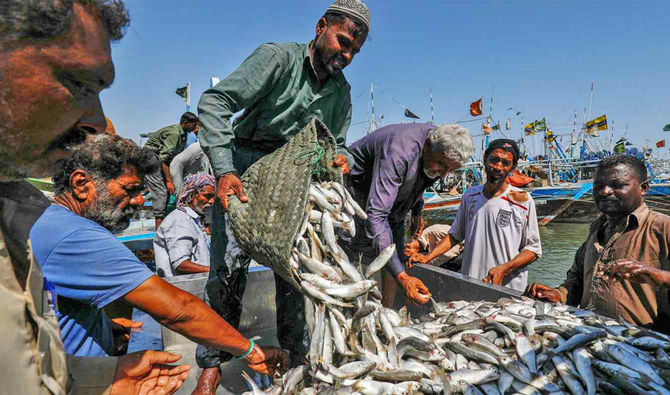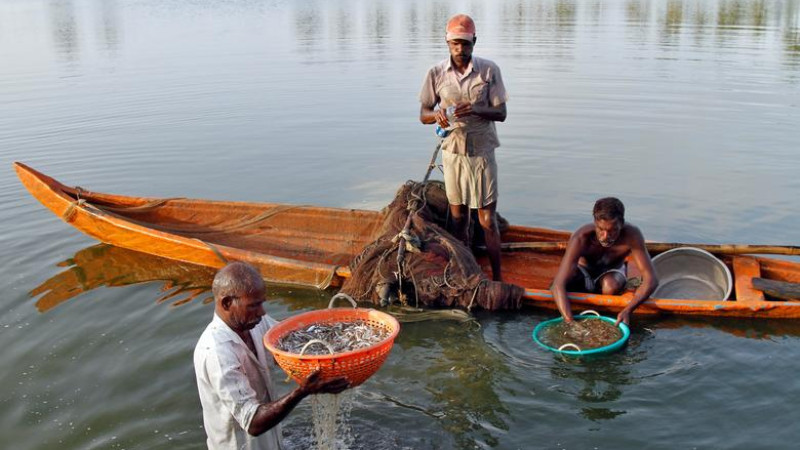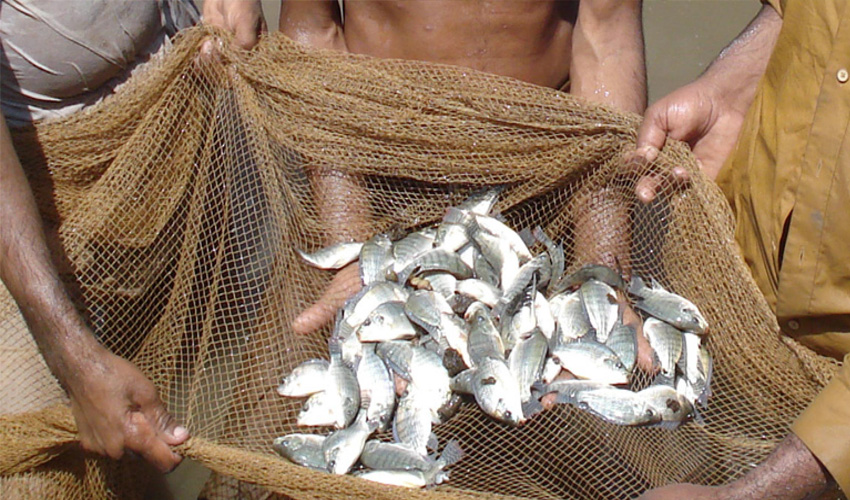In the coastal regions of Pakistan, a delicate and vital industry is slowly unraveling. The fishing community, which has long sustained millions of livelihoods, is facing an existential threat—climate change. From rising sea temperatures to shifting monsoon patterns, the impacts are multifaceted. As a country heavily reliant on marine resources, Pakistan's fisheries industry is now caught in a struggle against forces beyond its control.
Fishing has been an integral part of Pakistan’s coastal economy for centuries, providing sustenance to coastal communities, supporting livelihoods, and contributing significantly to the national economy. The sector is a cornerstone of Pakistan's blue economy, responsible for nearly 1.5% of GDP and generating over $1 billion annually from exports. Yet, this vital industry is facing mounting challenges due to climate change.
The Indus Delta, one of the world’s largest river deltas, is home to Pakistan’s rich marine life, which supports a thriving fishing industry. However, the rising temperature of the Arabian Sea and altered rainfall patterns are threatening the delicate balance of marine ecosystems.
What does the data tell?
One of the most apparent effects of climate change on fisheries is the decline in fish stocks. The Marine Fisheries Department of Pakistan reports that fish catch from the Arabian Sea has dropped significantly in recent years, with national fish production falling by 15% between 2015 and 2020. The causes are complex, but rising sea temperatures are undoubtedly a major contributing factor.
Warmer waters affect fish reproduction rates and migration patterns, especially for species like tuna, sharks, and pomfret, which are highly sensitive to temperature changes. According to the Pakistan Fisheries and Aquaculture Department, some key species have shown a decline of up to 30% in their populations due to temperature anomalies in the Arabian Sea over the past two decades.
The situation is particularly dire for small-scale fisheries, which depend on local, seasonal catches. These fishing communities, scattered along Pakistan’s 1,050-km coastline, are now experiencing reduced fish availability, forcing many to venture farther into the sea or turn to less sustainable fishing practices. In a survey conducted by the World Bank in 2021, 65% of fishers reported a significant reduction in their annual catches, while 70% expressed concerns about the long-term viability of their trade.
Shifting sea temperatures
Sea surface temperature (SST) plays a critical role in the health of marine ecosystems. The Arabian Sea, which borders Pakistan’s coastline, has witnessed an average increase of 0.5°C to 1.0°C in SST over the past 50 years, with projections indicating a rise of 2-3°C by 2050. This rise in temperature disrupts marine life in several ways. Many fish species, which thrive in specific temperature ranges, are migrating to cooler waters, leaving behind ecosystems that are not equipped to sustain them.
A particularly concerning development is the decline in coral reef health. The coral reefs off the coast of Pakistan, which provide habitat for a wide range of marine species, are experiencing bleaching due to higher sea temperatures.
The Pakistan Environmental Protection Agency (PEPA) estimates that 50% of coral reefs along the Makran Coast have died in the past decade. As corals die, so do the species that depend on them, including commercially important fish.
Loss and impact
The economic ramifications of these changes are staggering. Fisheries contribute not only to national income but also to the livelihoods of approximately 1.5 million people in coastal communities. These communities depend on daily catches for their food security and income, but climate-induced changes are making the sea less predictable.
The Sindh and Balochistan provinces, which have the largest concentration of Pakistan’s fishing industry, are particularly hard-hit. Fishermen in these regions have reported a dramatic decline in the quality and quantity of catches, leading to rising poverty rates in coastal communities. The International Labour Organization (ILO) estimates that over 200,000 fishing families have been affected by diminishing fish stocks and erratic weather patterns.
An economic analysis by the Pakistan Institute of Development Economics (PIDE) suggests that the fishing industry could lose up to $300 million annually by 2030 if current trends continue. This loss is compounded by the depletion of marine resources, which exacerbates food insecurity in coastal regions and leads to a rise in migration from these vulnerable communities.
What govt is doing?
The situation has prompted government bodies and non-governmental organizations (NGOs) to take action. The Ministry of Maritime Affairs, along with international partners, has launched several initiatives aimed at protecting marine biodiversity. Among the most notable is the Coastal Development Project, which focuses on restoring degraded coastal ecosystems and establishing marine protected areas (MPAs).
In 2020, Pakistan’s government declared several areas along the coast as Marine Protected Areas, including parts of the Churna Island and the Miani Hor region. These MPAs aim to provide safe breeding grounds for fish and other marine species, thereby helping to regenerate marine life and sustain local fisheries.
Moreover, initiatives like community-based marine conservation have gained traction. NGOs such as the World Wildlife Fund (WWF) Pakistan and the Indus for All Programme are working directly with fishing communities to promote sustainable practices and raise awareness about climate change. These programs encourage fishermen to use sustainable fishing techniques, reduce overfishing, and take part in coral reef restoration efforts.
Despite these initiatives, however, progress has been slow, and many fishermen continue to struggle with the immediate effects of climate change. The challenge lies not only in protecting marine resources but also in adapting fishing practices to the rapidly changing environment.
Act now!
The shrinking fish stocks and the changing dynamics of the fishing industry underscore the urgent need for a comprehensive approach to climate change adaptation.
Pakistan’s fisheries sector, particularly its small-scale operations, is highly vulnerable to the forces of climate change, and without significant intervention, these communities risk losing their primary source of income and sustenance.
- Investing in sustainable fishing practices: Promoting the use of modern, environmentally friendly techniques can help ease the pressure on overexploited fish stocks
- Expanding marine protected areas: MPAs are essential for the regeneration of marine life and must be expanded and properly managed to ensure their long-term success
- Developing climate-resilient livelihoods: For fishing communities, diversifying livelihoods through eco-tourism, alternative livelihoods (such as aquaculture), and training in climate adaptation practices will be critical
- Strengthening policy frameworks: Pakistan’s government needs to implement and enforce stronger policies related to fisheries management, climate change adaptation, and environmental protection.
A long-term strategy should include integrated coastal zone management, which considers both the health of the marine environment and the well-being of local communities. Increased investment in climate science and data collection will also be essential to monitor and predict changes in fish stock patterns and marine biodiversity.



























